Public healthcare facilities, especially tertiary hospitals, such as the MSF-supported Mazar-i-Sharif Regional Hospital in the Balkh province, are struggling to cover essential running costs like staff salaries, medicines and medical supplies, fuel, and oxygen supply, due to the lack of long-term structural support for the health sector in Afghanistan.
Mazar Regional Referral Hospital is the only regional referral hospital in the entire province and also supports other neighbouring provinces. In August 2023, MSF started supporting the paediatrics activities at Mazar-i-Sharif Regional Hospital in Balkh Province in collaboration with the Ministry of Public Health.
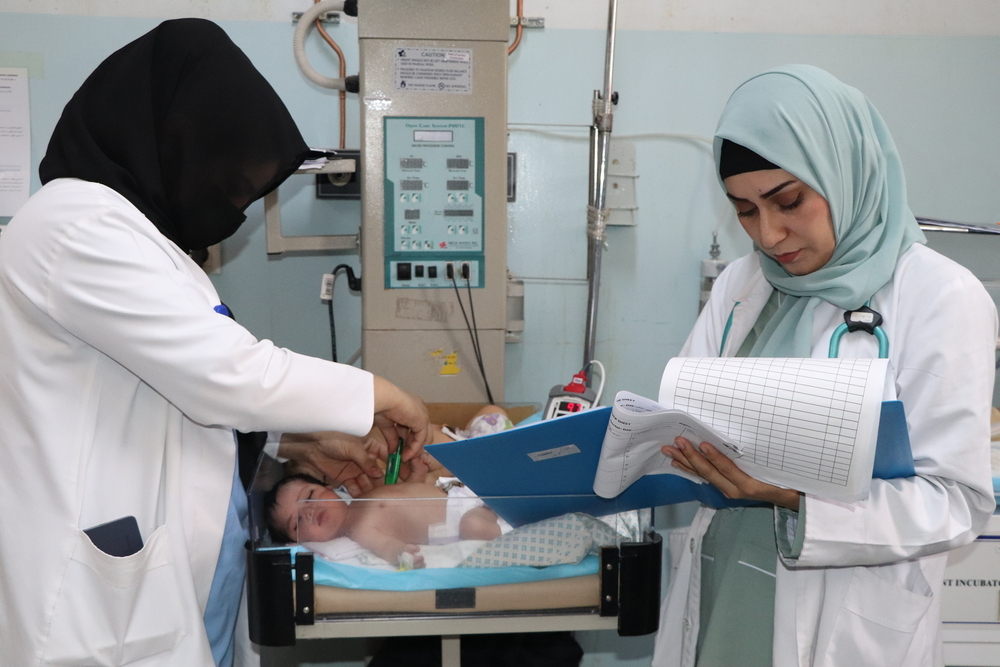
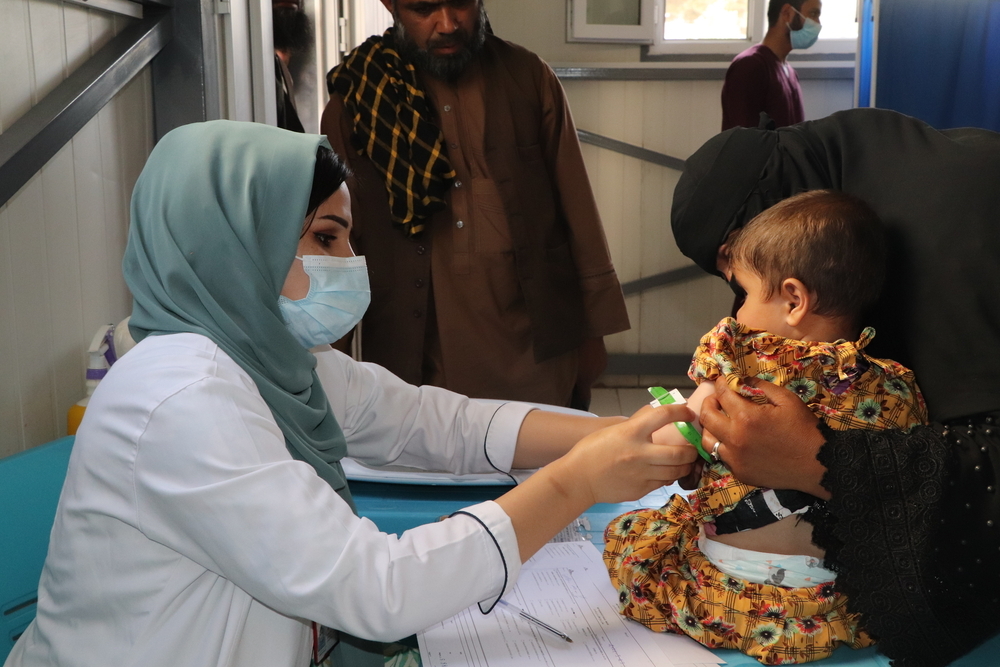
Today, our team run the neonatal intensive care unit (NICU), the paediatric intensive care unit (PICU), and the emergency room (ER) for children up to the age of 15.
Through our support to Mazar Regional Hospital, we see that the hospital is facing major gaps in resources, that are affecting its ability to continue to provide services to patients.
Many patients are forced to travel long distances to access medical care either because the facilities nearest to them are not fully functional as the resources they have, in terms of staffing and medical supplies are not enough to cover the needs of the people. This is adding pressure on tertiary and specialized care already suffering from systematic inadequacies.
One of our main challenges in Mazar Regional Hospital is currently the high number of patients. In the neonatal ward, for example, we started with 65 beds Neonatal ward, and gradually increased the number of beds to 100. Despite the increase in capacity, our bed occupancy rate remains above 100. At a certain point, we had a bed occupancy rate of up to 200%, meaning every bed had, more than one patient.
We also receive children in very critical conditions, some are dying just at the time of arrival in the health facility, either because they are brought late, or because the mothers, are bringing them from quite a long distance away from the hospital.
Masoma, 25 years old
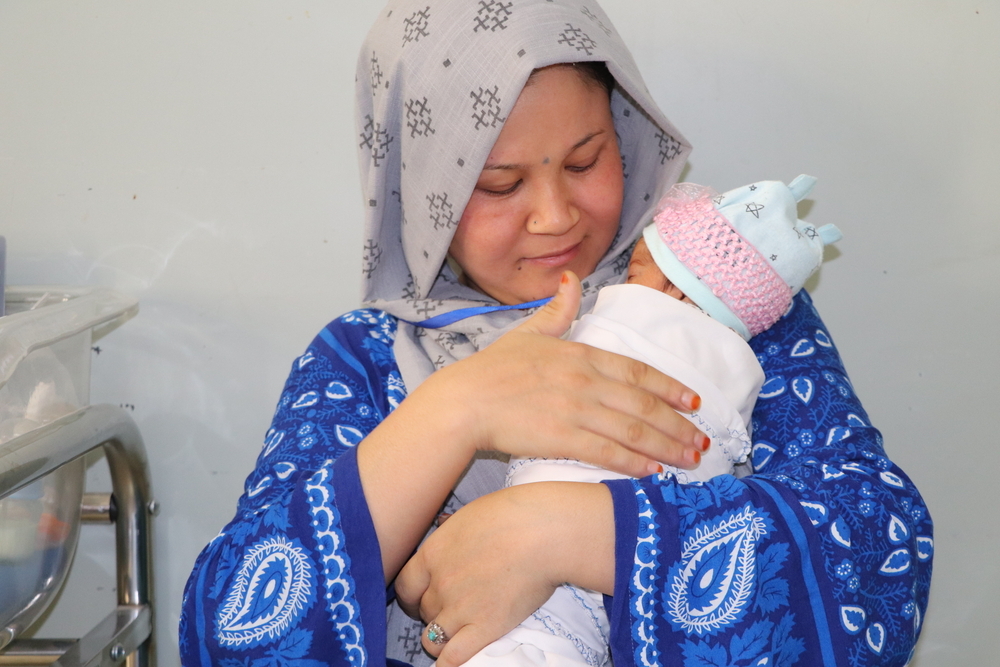
Masoma is 25 years old and a mother of two, from Ali Abad, district 12 of Mazar-i-Sharif City, which is one hour away from the Mazar Regional Hospital. Asma, her 20-day-old daughter, was born prematurely at eight and a half months and is now receiving treatment in the premature department in the Neonatal Ward of Mazar-i-Sharif Regional Hospital, supported by MSF. Masoma says:
Asma was born at eight and a half months via Caesarean section. She is stable now but is still underweight.
There is a clinic close to our house, but they don’t provide all the services.
They treat patients with common diseases like diarrhoea and colds. They provide very basic medicine like paracetamol for the body. Additionally, they provide normal deliveries but not Caesarean section.
Ali Abad district doesn’t have a specialised health facility with adequate services. If someone falls ill late at night, they won’t receive treatment. I experienced pain late at night and went to a nearby private clinic at 3 am.
My first baby was born via Caesarean section as well. Upon arriving at the clinic, I discovered that the stitches had torn internally, leaving only the skin intact above. The baby’s head was visible, necessitating immediate surgery.
The surgery cost me 15,000 Afghani, (equivalent to 212$) and my husband had to borrow the money because I couldn’t reach the regional hospital and had to undergo a Caesarean section in a private clinic right away.
Parwen, 33 years old
Parwen, 33 years old, travelled 3 hours from Chahar Kint district in Balkh province to Mazar-i-Sharif city to deliver her baby and to treat her 7-year-old son, Shafiqullah, who has been suffering from fever and body shaking for two months. Shafiqullah was received in the observation room of the pediatric ward at Mazar-i-Sharif Regional Hospital, supported by MSF. The family experienced challenges getting Shafiqullah to the hospital because of their financial hardships. Parwen says:
Chahar Kint district is far from Mazar-i-Sharif city, taking around 3 hours by car to reach due to the very bad roads.
In the beginning, my son had a fever and body shaking for two months. His legs became weak. We didn’t take him to the doctor because we live in the mountains and couldn’t afford to take him to the hospital. We were also unable to find a car to bring him here.
Once we took him to the nearby clinic, and they gave him medicines, but his situation did not improve. I am also experiencing labor pain. I went to the maternity ward, and they told me to come back four hours later for the delivery.
The nearest clinic is very far from us; we travel there by donkey, which takes 3 hours.
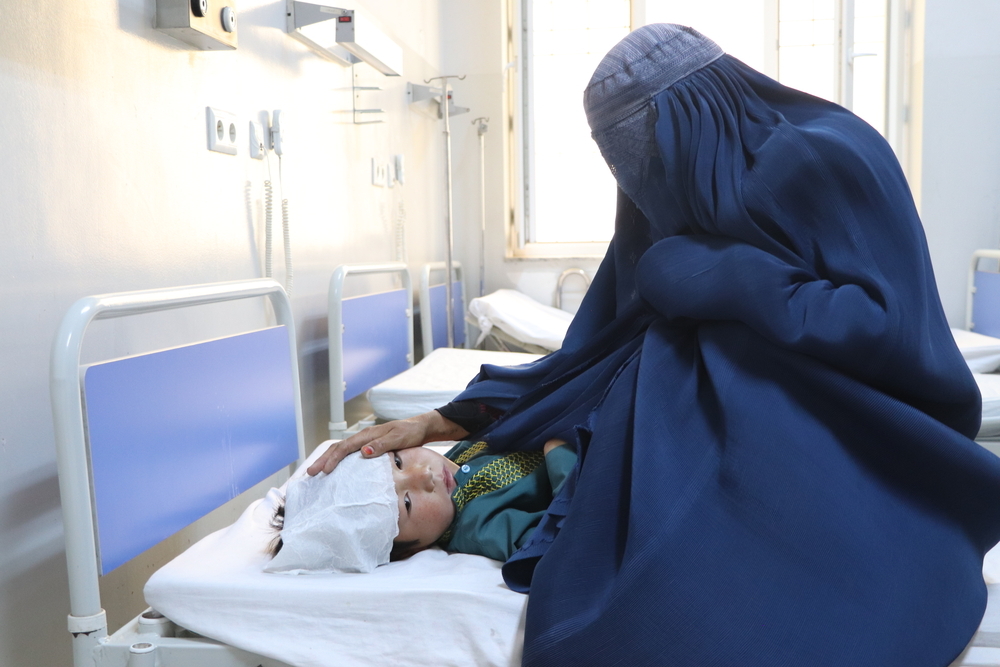
As my delivery time was approaching and I didn’t have anyone to support me, I came to my mother’s home in Mazar-i-Sharif city and brought my ill son as well for treatment.
Rahima, 20 years old
Rahima, a 20-year-old resident of the Faiz Abad district in Jawzjan province, travelled three hours to reach the Mazar-i-Sharif Regional Hospital. Her 5-month-old son, Ahmad Khalid, has been suffering from malnutrition since birth and is now receiving treatment in the MSF-supported paediatric intensive care unit (PICU) at the Mazar-i-Sharif Regional Hospital. Rahima is very concerned about her child’s life as his condition is deteriorating day by day. Rahima says:
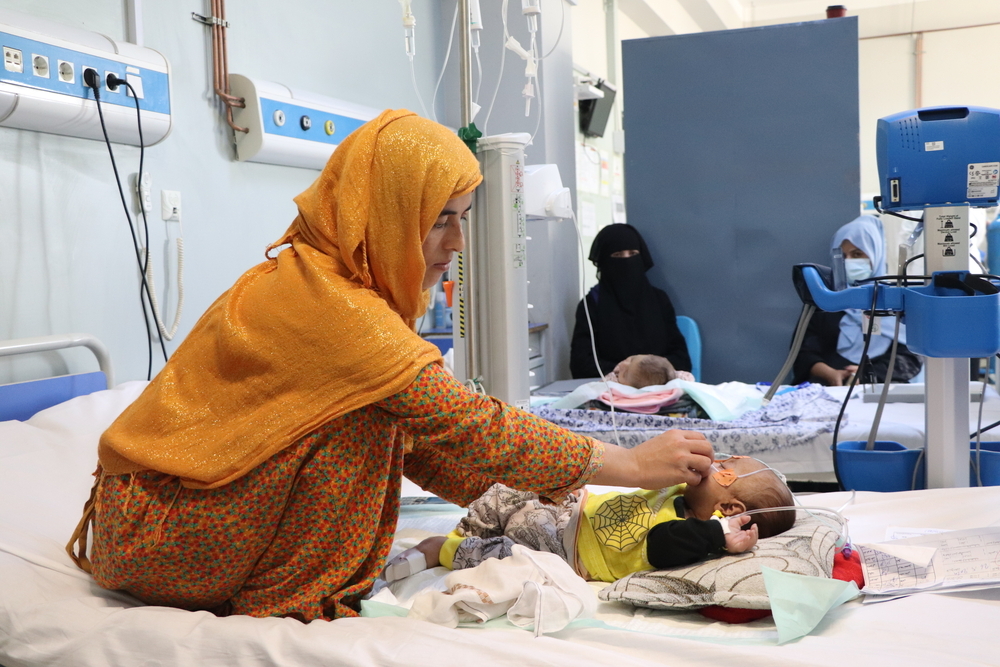
We came from Haider Abad, a village in the Faiz Abad district of Jawzjan province. It took us three hours or more to reach this hospital. My son has been sick for a very long time. At first, when he became ill, we took him to Murdyan Aqcha clinic, a clinic in another neighbouring district of Faiz Abad. Due to his condition, he was admitted there, but he didn’t get better, so we took him to Sheberghan, (the capital of Jawzjan Province, west of Mazar) and then to Kabul for treatment. The doctor in Kabul told us that he is malnourished and needs to be admitted to the hospital.
So, we decided to bring him back to Murdyan Aqcha clinic, where he received treatment in the malnutrition ward for 45 days. Then he contracted measles, so the doctor at the clinic referred us to Sheberghan Provincial Hospital.
His condition was deteriorating, and he was unable to breathe normally, so we decided to bring him to Mazar-i-Sharif Regional Hospital.
We have been here since yesterday, and the doctor says his condition is not good. He is constantly on oxygen. Without it, I can see his skin colour changing to dark.
He is very sick. It has been five months since we started taking him to different clinics, but he is not showing any signs of improvement.












